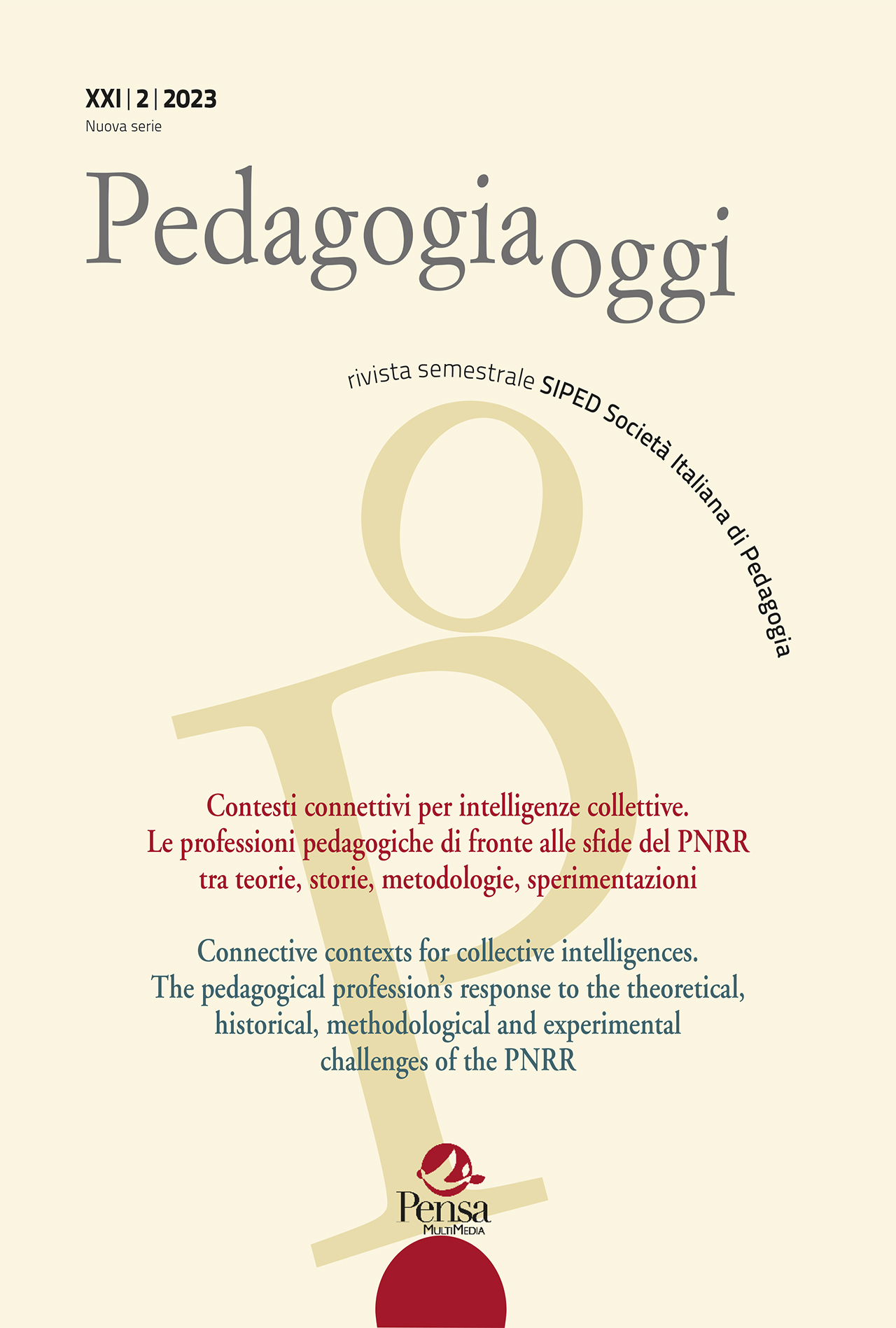Digital Skills and Inclusive Praxis for the Development of Collective Intelligence in Scuola 4.0
DOI:
https://doi.org/10.7346/PO-022023-12Keywords:
Competenze digitali, Inclusione, intelligenze collettiveAbstract
Our need to foster the acquisition of digital skills (Italian Law No. 107/2015) is not only an opportuninty, but also an integral part in the evolution of the individual and society. A general impulse towards innovation and the introduction of digital technology in education through the implementation of dedicated tools, strategies and processes, along with the modernization of learning spaces and contexts in accordance with the National Recovery and Resilience Plan (PNRR), greatly contribute to designing more valuable and competitive Italian school curricula – evon more so if our innovation efforts point towards curricula that are mainly centred on inclusivity. Therefore, new technologies act as contextual facilitators and prompting instruments (Linx, Lehman,1999; Romanazzi, 2021), educational strategies and cognitive processes, curricular competences and soft skills that the pupil can use for self-determination (Cottini, 2016; Deci, Ryan, 1985; Wehmeyer et al., 2003), inasmuch as he/she can consider himself/herself capable of controlling situations, activities or aspects of his/her own psychological, social and cognitive functioning (Bandura, 2000). As the Italian School curriculum is not yet clearly centred on the use and transmission of digital skills, it becomes vital to consider reformulating it without overlooking the innovations advocated by PNRR with the Scuola 4.0 initiative (Balzano, 2022). The present study thoroughly investigates the opportunities that the digital transition can provide each and every pupil with in order for him/her to become an active subject in his/her own learning itinerary (Bocci et al., 2017). To achieve the aforesaid objective, the transition should specifically promote cognitive and meta-cognitive processes and educational routes that are creative, divergent, immersive, emotionally involving and useful for the development of collective intelligence (Lévy, 2002) and the valorization of a barrier-free school system.




